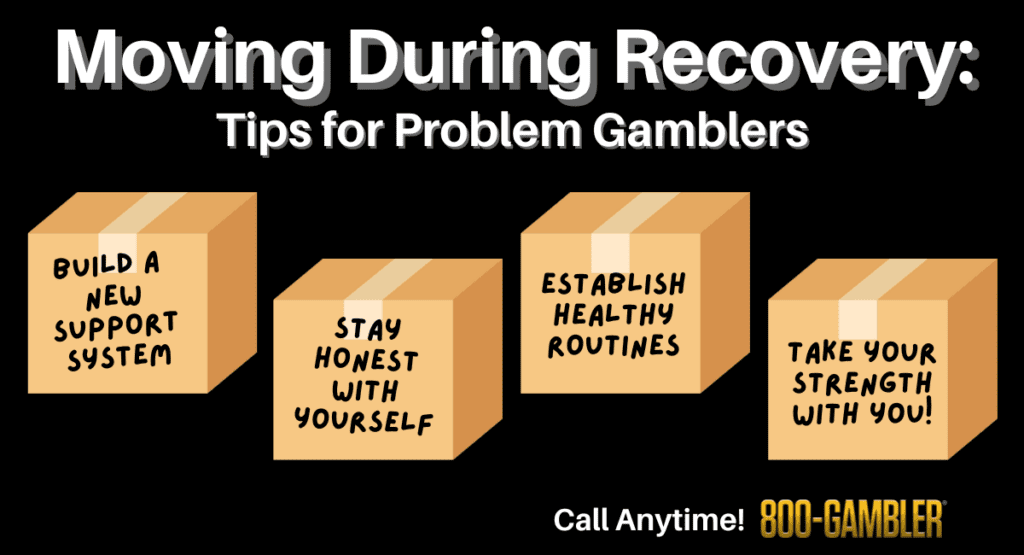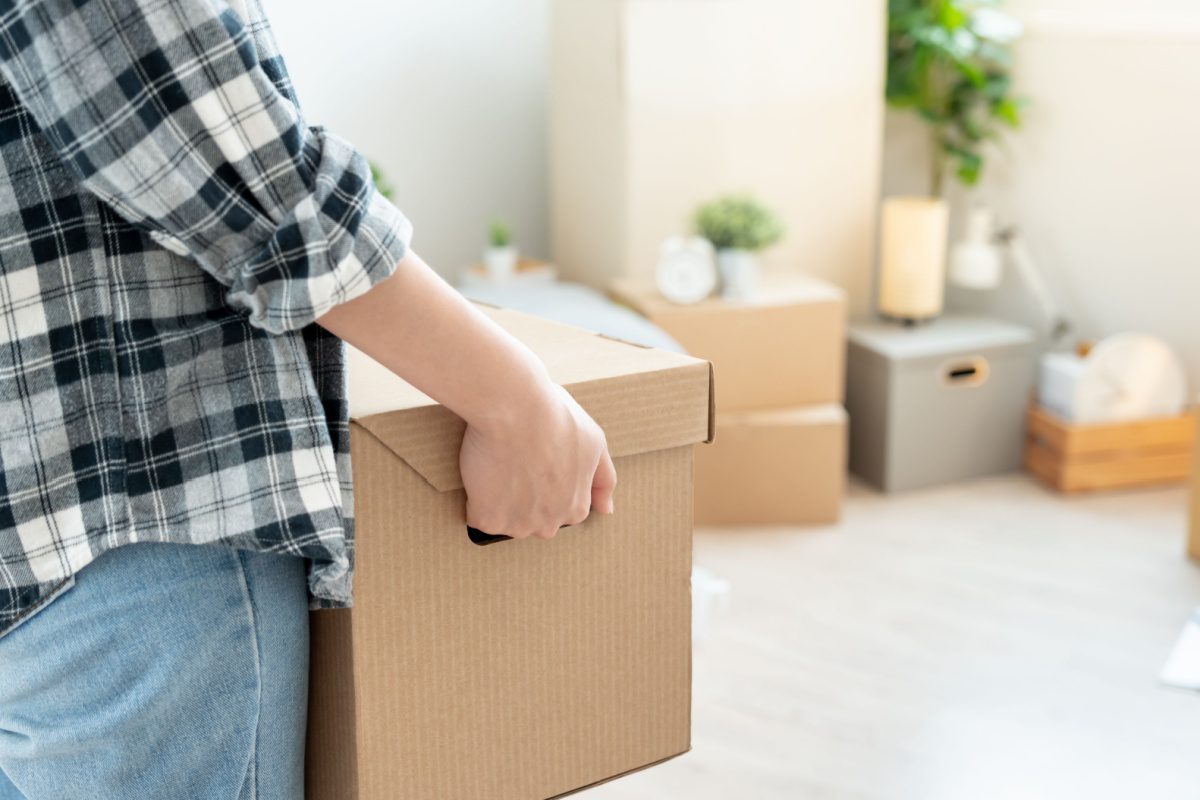Starting over in a new city can be exciting. It’s a chance to meet new people, explore unfamiliar neighborhoods, and redefine what your day-to-day looks like. But for someone who’s navigating a difficult relationship with gambling, that fresh start can also bring along a unique set of challenges. New surroundings, unknown triggers, and a lack of familiar support can make the transition more overwhelming than freeing.
If you’re relocating while working on your relationship with gambling, it’s important to plan ahead and prioritize your well-being. Let’s explore what to expect and how you can stay grounded during this big life shift.

The Risks of Isolation in a New Environment
One of the biggest challenges of moving to a new city is feeling alone. You’re away from familiar routines, friends, family, and support systems you may have come to rely on. When you’re in unfamiliar territory, loneliness can sneak in quickly — and with it, the temptation to return to old habits.
Some people find themselves seeking comfort in familiar patterns, especially during periods of emotional stress or uncertainty. Without a sense of structure, it can become easier to fall back into behaviors they’ve been trying to distance themselves from. That’s why building a new support system early on is so important.
Whether it’s finding a local therapist, visiting Gamblers Anonymous meetings, or regularly checking in with an accountability partner, staying connected to guidance can help you stay steady while everything around you changes.
The Temptation of a “Clean Slate”
The idea of starting over can be incredibly powerful. When moving to a new place, it’s tempting to believe you can leave everything behind and create a version of yourself that’s untouched by past experiences. But while a change in scenery can be helpful, it’s not a magic fix.
Gambling-related challenges don’t disappear just because your zip code does. In fact, new cities often come with new access points: casinos, online betting communities, and different gambling laws. What may have been easy to avoid in your hometown could now be just a few blocks away.
That’s why it’s important to stay honest with yourself. A clean slate doesn’t mean pretending the past didn’t happen — it means using what you’ve learned to build better habits, even in a brand-new setting.
How to Establish Healthy Routines
Structure is your friend. During a move, it’s easy to feel ungrounded, but creating routines can help you feel more in control. Simple habits like setting a morning alarm, planning meals, or taking a daily walk through your new neighborhood can help reduce feelings of uncertainty.
More importantly, these routines leave less room for temptation. If you find yourself with too much unstructured time, it may be helpful to fill your calendar with healthy distractions: think fitness classes, volunteer work, local events, or hobbies you’ve been wanting to try.
When you have something to look forward to, it becomes easier to stay present, and harder to dwell on urges or past behaviors.
Recognizing New Triggers
A new city comes with new places, people, and stressors. You might pass by a casino on your daily commute, overhear coworkers talking about betting apps, or receive local ads that feel triggering. These experiences might be different from what you faced in your old environment, but they can be just as powerful.
Staying aware of these new triggers is essential. Write them down if needed. If something sets off an emotional reaction or increases your urge to gamble, take note of it. With time, you’ll learn how to navigate or avoid these situations entirely.
Creating a Support Network From Scratch
Moving to a new city doesn’t mean you have to figure it all out alone. Support is still within reach — it just might look different now. Whether it’s joining an in-person support group or calling a helpline, what matters most is that you stay connected.
It’s also okay to take small steps. Maybe you start by talking to a trusted therapist. Or perhaps you begin by creating boundaries with new friends who suggest activities that feel risky. These decisions, while sometimes uncomfortable, help lay the foundation for long-term growth. You’re not starting from nothing — you’re bringing with you everything you’ve already learned.
Take Your Strength With You
Relocating is a major life transition. When you’re someone who’s faced gambling-related challenges, it adds another layer of complexity. But here’s the truth: if you’ve taken steps to build a healthier life, those tools don’t disappear when you move. They come with you. Your growth, your strength, and your self-awareness are part of the journey.
If you’re navigating the challenges of gambling and need someone to talk to, call 800-GAMBLER. Help is available 24/7 through our toll-free helpline — confidential, free, and here for you.



